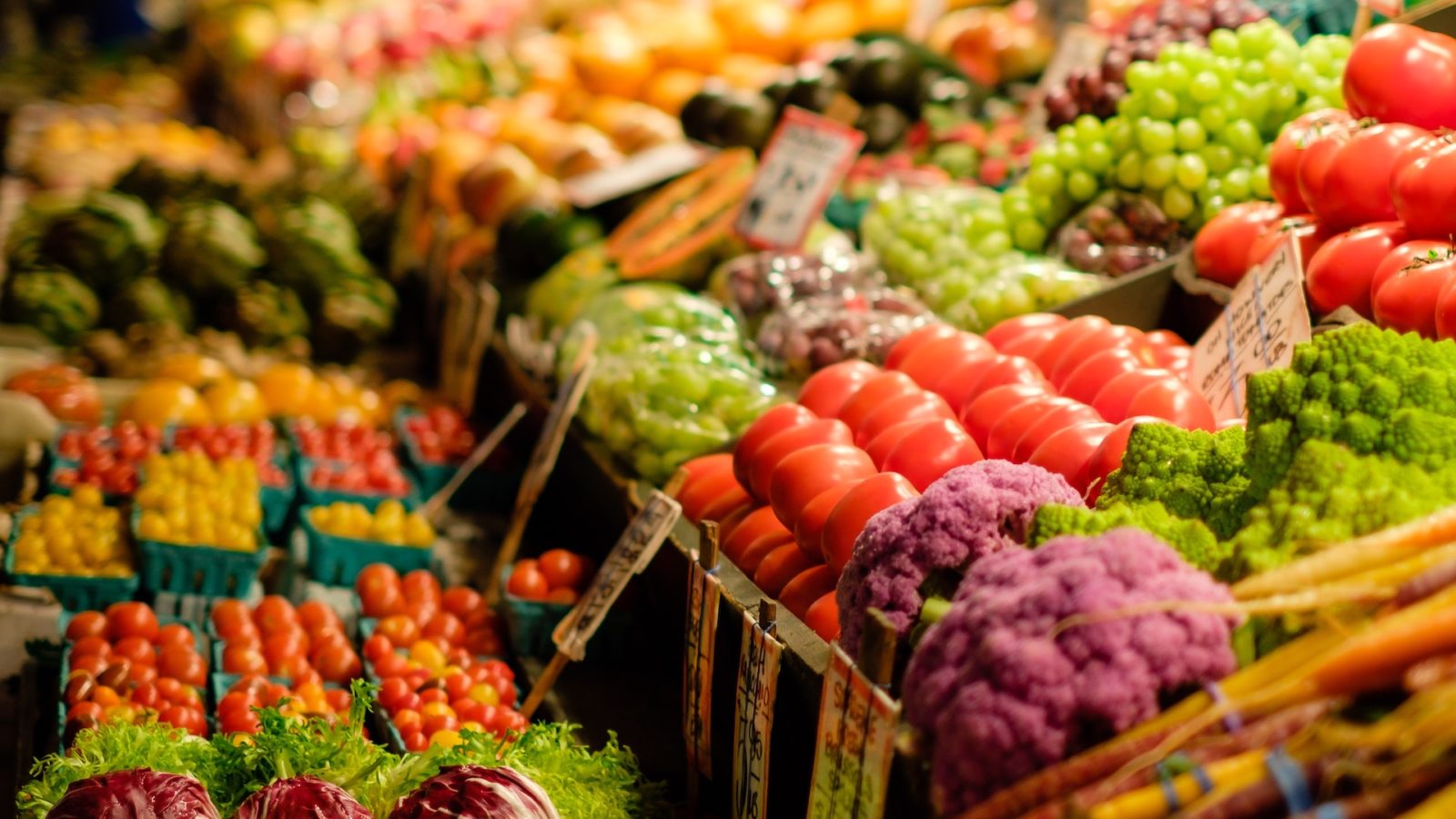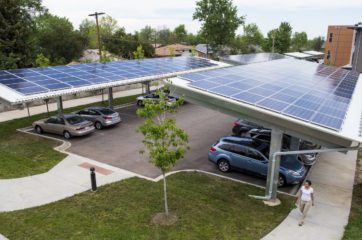Have you heard that there’s another diet trending? Nope, this time it’s not the Keto diet, juice cleansing, intermittent fasting, the soda diet, or the millions of others that might come to mind. There’s one more to add to your list, this time with a focus on sustainability: the plant-based diet (ranging from reducing meat consumption little by little to pescatarian to flexitarian to vegan) – trending in beautiful, sunny California.
Speaking of food, imagine yourself walking into a local restaurant and scanning the menu. What do you see? More often than not, you will probably be looking at quite a few meat-based meals. Now, is this surprising? Probably not. Animal-based foods have long been the focal point of most diets. These foods have become a norm so much so that most people are probably neither concerned nor shocked upon hearing that the average American consumes around 274 pounds of meat per year — not including fish or seafood — or that there has been a 200 to 500 percent rise in meat consumption since the 1990s. But, for climate activists, these are scary realities.
Our planet is hurtling towards a 2℃ or higher global temperature increase due to anthropogenic activities, mainly the burning of fossil fuels. This has raised more than a degree of concern. Our very near future could consist of 37 percent of Earth’s population subjected to fatal heat waves, increased extremity and frequency of natural disasters, warming of up to 15℉ in formerly cold areas, increased sea level rise, decreased biodiversity, habitat degradation, a 99 percent decline in coral reefs, among many more frightening consequences. These changes are, unfortunately, only the tip of a looming and ever-growing iceberg of climate-induced impacts.
For most people, it’s obvious that our typical practices are due for a drastic, necessary change. Environmental awareness and sustainability have been trending in various sectors of world politics, economics, and lifestyle choices, yet very few people have taken a look at their diets as a source of environmental change. Believe it or not, the food we grow and consume makes a much larger environmental impact than one might think.
My cheeseburger isn’t actually hurting anyone, is it?
Unsurprisingly, the very milkshakes and beef dinners that are regularly consumed are hurting more than just our health. Global food production accounts for at least one quarter of total greenhouse gas (GHG) emissions and requires the total use of half of the planet’s habitable surfaces.
Meat and dairy alone contribute at least 14.5 percent of total annual GHG emissions, which is 0.5 percent higher than the emissions created by the world’s entire transportation sector. In fact, the five largest meat and dairy producers create more planet-warming emissions than the world’s top three oil companies combined. Narrowing in on some more specific statistics, one kilogram (about 2.2 pounds) of beef protein requires 18 times more land, ten times more water, nine times more fuel, 12 times more fertilizer, and ten times more pesticides than one kilogram of plant-based kidney bean protein. Applying these figures to the 23.7 billion meals consumed globally each day, one can conclude that each plant-based versus animal-based meal produced really does make a drastic impact. That being said, it’s not surprising that meat and dairy farms are predicted to emit 80 percent of the world’s budgeted greenhouse gas emissions by 2050.
So, what does this mean for our eating habits? Given these huge numbers, you might be wondering if individual change makes any difference at all. Well, shifting to a vegetarian meal one day per week would save the same amount of planet-warming emissions as produced from driving 1,160 miles. Expanding on this analogy further, if everyone in the U.S. cut out meat or cheese for one day per week, we would collectively make the same impact as taking 7.6 million cars off the road. Further, if you chose to eat a veggie burger instead of a quarter pound hamburger, you would be saving 460 gallons of water — about 30 showers — with that singular switch. So yes, similar to how every vote makes a difference, every meal does as well.
“I don’t care about the environment, next…”
Let’s say you’re reading this and thinking, “The environment is the least of my worries, so why should I support state-wide or national plant-based policies?” Well, then I raise you to the discussion of social justice and individual health.
Our society has allowed climate change to disproportionately impact certain people on this Earth, turning environmental change into environmental racism and injustice. Environmental injustices are much more prevalent than they are discussed — especially when it comes to our food systems. Livestock factory farms, high-pollution zones, coal power plants, wastewater disposal wells, and hazardous waste sites are predominantly located in minority communities, negatively affecting their health and well-being through major air, food, and water contamination. Additionally, the meatpacking industry, which preys on minorities to make up almost 75 percent of its workforce, is one of the most dangerous industries in the U.S., both physically and mentally.
After a few searches related to environmental racism and factory farms, my computer was flooded with horrifying articles and statistics portraying the intense environmental degradation and harm that minority communities face at the hands of animal industries, city planners, oil and energy companies, water management businesses, and many others. Looking to be socially conscious and active in today’s world? Start by reducing your meat and dairy intake while also reading up on environmental racism and justice.
To continue my quick aside on the holistic impacts of animal- versus plant-based foods, I’ll quickly dive into personal health. Now, thoughts of protein and nutrient deficiencies may be popping into your head as I advocate for even the smallest switch to plant-based eating, but trust me, I’ve provided data to dispel your qualms. The world has been swindled by common myths about the health benefits that come with red meat, milk, and generally consuming high amounts of animal products. Looking at the science-backed research on this topic instead of campaigns such as “Got Milk?” shows us that switching from a more animal-based to plant-based diet reduces blood pressure and risk of heart disease, cancer, and diabetes. Meat, especially red meat, is classified as a major carcinogen, making many question why it is one of the most unregulated and advertised carcinogens out there.
Now that we’re well-versed in why plant-based policies are so important, let’s take a dive into how prevalent they are in the U.S., as well as in the lovely state of California.
The Push for Plant Policy
This so-called “Battle of the Burgers” has bubbled into a growing debate because of the relevance that food has in our daily lives. Across the U.S., climate-friendly nudges against meat consumption have been met with incredible anger, causing progressive state leaders and lobbyists to remove as much anti-meat sentiment from their proposed policies as possible in hopes of passing more sustainable food and agriculture legislation.
On a positive note, the production and consumption of protein alternatives has risen across the U.S. through companies such as Impossible Foods, Beyond Meat Inc, and Amy’s Kitchen.
Nationwide movements in support of plant-based foods are increasing in number as well. A recent letter to Congress, penned by the Good Food Institute and 60 other organizations, asked that $50 million be directed towards alternative protein research and development for the U.S. Department of Agriculture and National Science Foundation’s FY22 budget – a reasonable request given the U.S.’s commitment to achieving emissions reduction targets. Additionally, the Physicians Committee has petitioned the White House to include decreases in animal agriculture and promote a plant-based diet in its “Tackling the Climate Crisis at Home and Abroad” executive order.
The U.S. government has faced incredible scrutiny in regard to the disparities between its climate commitments and actions. One example of this includes the soaring high subsidies distributed to animal industries and livestock instead of plant-based agriculture, pushing the nation away from opportunities for positive public health outcomes, reduced animal cruelty, and decreased harmful planetary boundary impacts. On top of this lack of federal support, plant-based companies and brands have been battling a flurry of proposed bills attempting to restrict how plant-based alternative meat and dairy products are labelled. These battles were instigated by meat and dairy companies in hopes of decreasing the sale of plant-based alternatives as well as the supposed product confusion among consumers.
Despite a lack of federal change and even pushback against plant-based foods, veganism has increased five-fold since 2009. This rise is in part due to the Plant Based Foods Association, which lobbies the federal government to shift policies towards benefitting or increasing plant-based foods — more in-depth information on President Biden’s food-related climate plans can be found here.
How’s the situation on the West Coast?
As a native Californian, I’ve grown up alongside the rising trend of plant-based eating and watched as vegan restaurants became not only accepted, but trendy too. California, depicted as a progressive, beachy utopia in most movies, is unsurprisingly spearheading the plant-based movement. In comparison to many Southern and Midwestern states in the U.S., Californians have access to a much larger variety of plant-based foods and dining options. Both California’s culture and increased environmental awareness have allowed Californians to easily adopt plant-based diets if desired. The West Coast and Northeastern states have shown the highest interest in veganism, with California leading the trend just behind Oregon, Vermont, and Washington. California also has the highest number of vegan restaurants across all U.S. states. Many of these restaurants remain concentrated in Los Angeles or San Francisco, with a few recommendations compiled here.
On a statewide level, California is the first state to create a plant-based lobbying group in hopes of equalizing the power play that meat and dairy monopolies strive on. The California Plant-Based Alliance has protected plant-based businesses and consumers by giving them a collectively stronger voice to increase their opportunities for success.
Environmental, animal-cruelty, and health activists have a few more reasons to throw their hands up in celebration. California has finally enacted a law requiring plant-based meal options in all state facilities — hurra! Governor Jerry Brown signed SB 1138 in 2018, which requires all prisons, hospitals, elderly homes, and other state facilities to provide a few entirely plant-based food options, finally ensuring equitable food provisions across all of California. Los Angeles — ahead of the game per usual — has been entertaining a motion by City Councilman Koretz that would require public venues and some private businesses, such as movie theatres, sports stadiums, airports, and others to offer at least one fully vegan menu option.
Turning towards other public and private facilities, such as schools, the California Climate-Friendly Food Program, or AB 558 and AB 479, plans to promote plant-based eating by allotting extra state funding for schools serving plant-based meals. These options would increase food equity and access throughout schools, decrease their carbon footprints, and improve public health by guiding students away from the highly processed foods that tax dollars currently fund. The aforementioned policies have huge environmental potential. For example, if every California public school switched from a beef to plant-based burger just once a month, 300 million pounds of carbon dioxide emissions could be prevented from entering our atmosphere.
In contrast to the pro-plant-based policies being discussed by the state government, a large portion of California’s agricultural land is still used to either grow feed for or raise livestock themselves, thus greatly impacting many planetary boundaries and contributing to extremely high GHG emissions. The Smart Climate Agriculture Program, or AB 1289, hopes to support California farmers in their transition from animal-based farming to sustainable, plant-based agriculture. Currently, the Department of Food and Agriculture provides incentives for farmers to use environmentally beneficial practices to support their nearby ecosystems, air quality, and wildlife, but this new bill hopes to provide local farms with even more tools, resources, and funds to transition towards plant-based agriculture.
Due to a lack of highly progressive, state-wide plant-based food policies and incentives, various cities across California are taking this responsibility into their own hands. Berkeley, California has become the first city in the U.S. to adopt Vision 2025 for Sustainable Food Policies, committing itself to replacing 50 percent of the city’s animal-based food with plant-based alternatives. Berkeley hopes to address the climate impacts and moral issues related to animal-cruelty, social equity, and community health that comes from industrial food production. Other initiatives have spread across California and the U.S., such as the Good Food Purchasing Program, Green Monday, Green New Deals, the Planetary Health Diet, the Paris Climate Accord, the FAIRR Initiative, and UC Berkeley’s Cool Climate Network.
Looking Forward
We are currently living in an unnerving time given the daunting problem of climate change, yet I see hope dotted along the horizon. Never before has sustainability been such a hot topic. It is time for our voices to be heard and for our actions to make real change. California and so many other cities, states, industries, and countries are implementing the progressive policies needed to bring our world into a more sustainable future. I encourage you all to make any plant-based change that you can, whether it be through your eating, voting, or policy-supporting habits. Perhaps start with oat milk and end with cooking yourself a fully vegan meal, each change is appreciated and acknowledged.
So, I leave you to ponder your food choices and fight for the implementation of sustainable policies in your own state. Visit Climate XChange’s website for a more comprehensive overview of state-wide policies across the United States!









